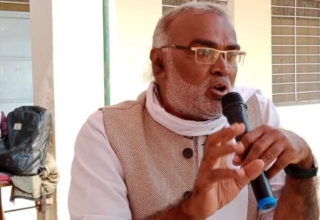
NSRCEL or N S Raghavan Centre for Entrepreneurial Learning (esb 2000), is the start-up incubator of IIMB. NSRCEL is also is also the first incubator with a program for tailored for social entrepreneurs and their unique challenges and is supported by Niti Aayog, Department of Science and Technology and Ministry of Electronics and Information Technology. Over 585+ and over 1300+ ventures have gone through the Incubation at this incubator, thus far.
On December 10-11, NSRCEL hosted a Women Entrepreneurship Summit for knowledge sharing and networking opportunities for women entrepreneurs. Anand Sri Ganesh, COO, IIMB – NSRCEL, tells Curriculum magazine that this Summit Up will be an annual platform from NSRCEL and IIMB to bring together the ecosystem to celebrate women entrepreneurship and eliminate hurdles to innovation and scale.
Women in work or say in hardcore economy has been a key discourse for quite some time now, your own NSRCEL has a dedicated women oriented program. Given your own experience, how much change do you see in the mindset and on ground?
Our challenge is that we are against generations of stereotyping and deep-seated biases. Our opportunity is that both the momentum and the upside are very encouraging. At NSRCEL we are seeing women entrepreneurs with extremely innovative ideas willing to stay the course and make a difference to their markets and consumers. In doing so, they are not only making a huge change in mindsets but also contributing to our country’s economic growth.
This conference has come at a time when a lot of rethink is going on. In such a backdrop, how significant is this conference in terms of networking as well as ideation and promotion of women entrepreneurs?
The conference has brought together the government, policymakers, industry leaders, entrepreneurs, and academia together to grapple with how we can structurally and systemically overcome barriers to creating and scaling women entrepreneurs. It has provided a great platform for women founders and aspiring entrepreneurs to share their experiences and learn from one another. I feel the event has also catalyzed to create collective energy to break through barriers and achieve big things.
Coming to expected outcomes of this event, what do you think are the major takeaways? Will we see more such conferences on a regular basis?
Summit Up will be an annual platform from NSRCEL and IIMB to bring together the ecosystem to celebrate women entrepreneurship and eliminate hurdles to innovation and scale. The event itself has been both an inspiration and a humbling experience. The stories that we have heard of how entrepreneurs have overcome unimaginable odds to come through have been truly heartening. There is a huge commitment from leading corporates in India and globally towards the cause. The fundamental research that faculty from IIM Bangalore and elsewhere on the subject helps us understand structural barriers and how to dissolve them.
But we also realise that there is a long way to go before we see the full potential benefits to the economy and society from this movement. We need to stay the course ourselves.
You also run a student entrepreneurship program, can such programs overlap, and therefore put women students at an advantage?
Student entrepreneurs face unique and peculiar challenges to converting their ideas to viable products and then transforming themselves from students to entrepreneurs. It takes a combination of life skills, entrepreneurial ability, and societal support to traverse that journey. In fact, many of our student ventures today are women-led or have a woman co-founder.
A general question on whom do you support? Any entrepreneurs or only those enrolled at IIMB? And, how does one approach this whole process?
NSRCEL is an open incubator. We welcome and work with entrepreneurs from across the country, and across backgrounds and sectors. We have a combination of sector-agnostic programs as well as incubation interventions that focus on a specific industry or problem area. We encourage aspirants to apply to programs of their choice through our website. Applicants go through an evaluation process – it can be a bit rigorous, but it will be worth it.
With tech or gig becoming the dominant driver of economy, what are the emerging areas for business?
Almost all ventures today are tech-enabled, using technology to make their businesses more efficient, using technology as an enabler to scale or embedding technology to encapsulate intellectual property. We see entrepreneurs naturally imagining their ventures from a lens of technology-enablement using cloud and mobile technologies, leveraging social platforms, or embedding AI-ML. This will be the future of innovation and entrepreneurship that sustains and scales. What is encouraging is such innovation in creating economic and societal impact in areas such as consumer brands that target the youth economy, financial literacy, affordable healthcare, and environmental sustainability.











